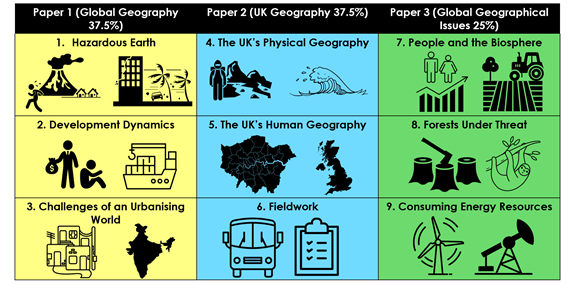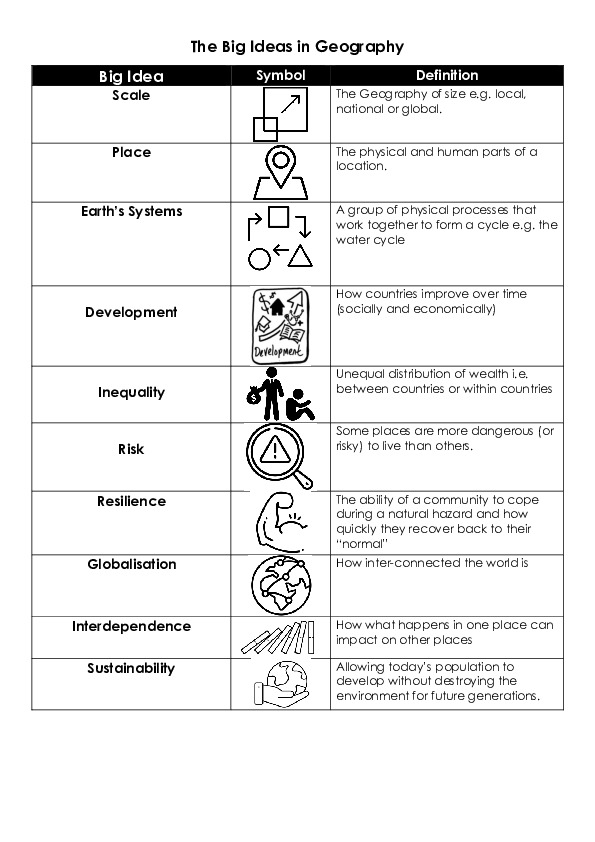Geography
Moving from Primary to Secondary
From KS2 we look to develop our students into confident Geographers by exploring a diverse range of human and physical geography topics. We work on embedding a vast range of key words into their verbal and written answers through explicit teaching, cumulative quizzing and modelling whilst also addressing any deficits that are present from the KS2 national curriculum.
Creating Subject Experts
The intent of Acorn’s secondary Geography curriculum is to build subject experts. To develop students over three years that are competent and confident geographers. This means developing students that can:
- Think like a geographer
- Speak like a geographer
- Write like a geographer
Our intent is to help students make sense of the world around them by inspiring curiosity and an understanding of the human an physical processes that shape the planet at a range of scales – past, present and future. We illustrate our lessons with a range of example case-studies that are intriguing but importantly, different to the examples students will study if they opt to study Geography at KS4. We aim to help students acquire knowledge to take part in and understand a world outside their own direct experiences, helping minimise the disadvantage gap. We aspire for students to develop a passion and “sense of duty” to be environmentally responsible, compassionate, resilient and sustainable citizens now and in the future. Within lessons and units we highlight the danger of a “single-story” e.g. China is not just about the One Child Policy, Nepal was not just an earthquake, Africa is not all poor. Overall, we aim to equip students with a range of powerful geographical knowledge to form a coherent view of the world that they take can take with them into the world if they stop studying Geography at the end of KS3 or use as a foundation for their study into KS4 and beyond.
Our curriculum is built around substantive knowledge (knowing what e.g. key words and their definitions) and disciplinary knowledge (knowing how to apply this information). The disciplines which lesson objectives and assessments are built around include:
- Knowledge and Understanding (recalling geographical facts to describe physical and human processes accurately)
- Application of knowledge (applying these geographical facts to explain patterns or processes, construct a balanced argument or make an informed judgement)
- Graphical Numeracy (the interpretation and construction of a range of graphs)
- Cartographical Skills (the use of OS map skills, satellite images and diagrams to interpret landscapes)
The topics students study are underpinned by 8 big ideas. These act as a framework of conceptual knowledge to unpick geographical issues and so that these challenges facing our planet can be analysed through a geographical lens. These concepts represent a second layer of disciplinary knowledge. They are:
- Place
- Scale
- Sustainability
- Physical Processes and Systems
- Global Connections (interdependence)
- Human Development
- Inequality
- Risk & Resilience
These key concepts are the “golden threads” that flow through topics from KS3-KS5 and will help equip students with the tools to analyse a range of geographical issues.
Subject Disciplines (Skills)
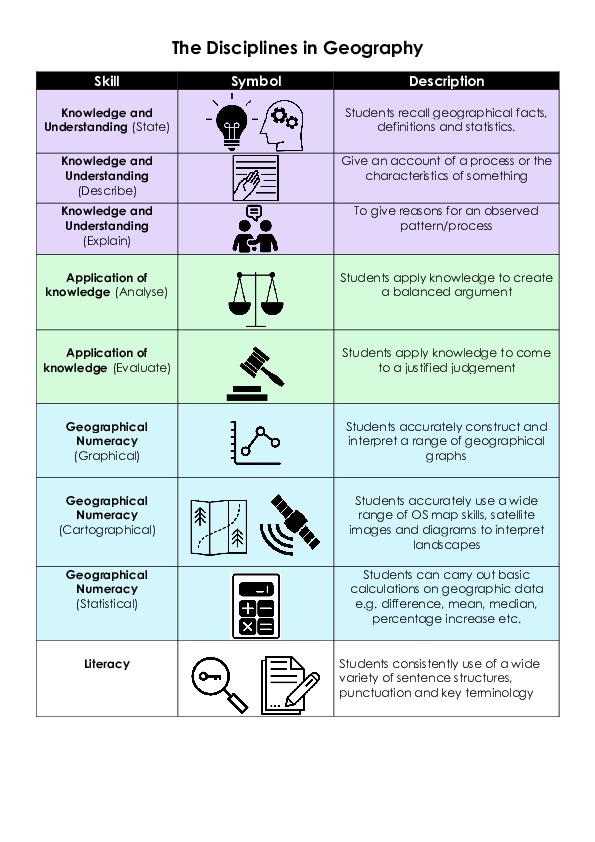
Subject Substantives (Knowledge)
Roadmap
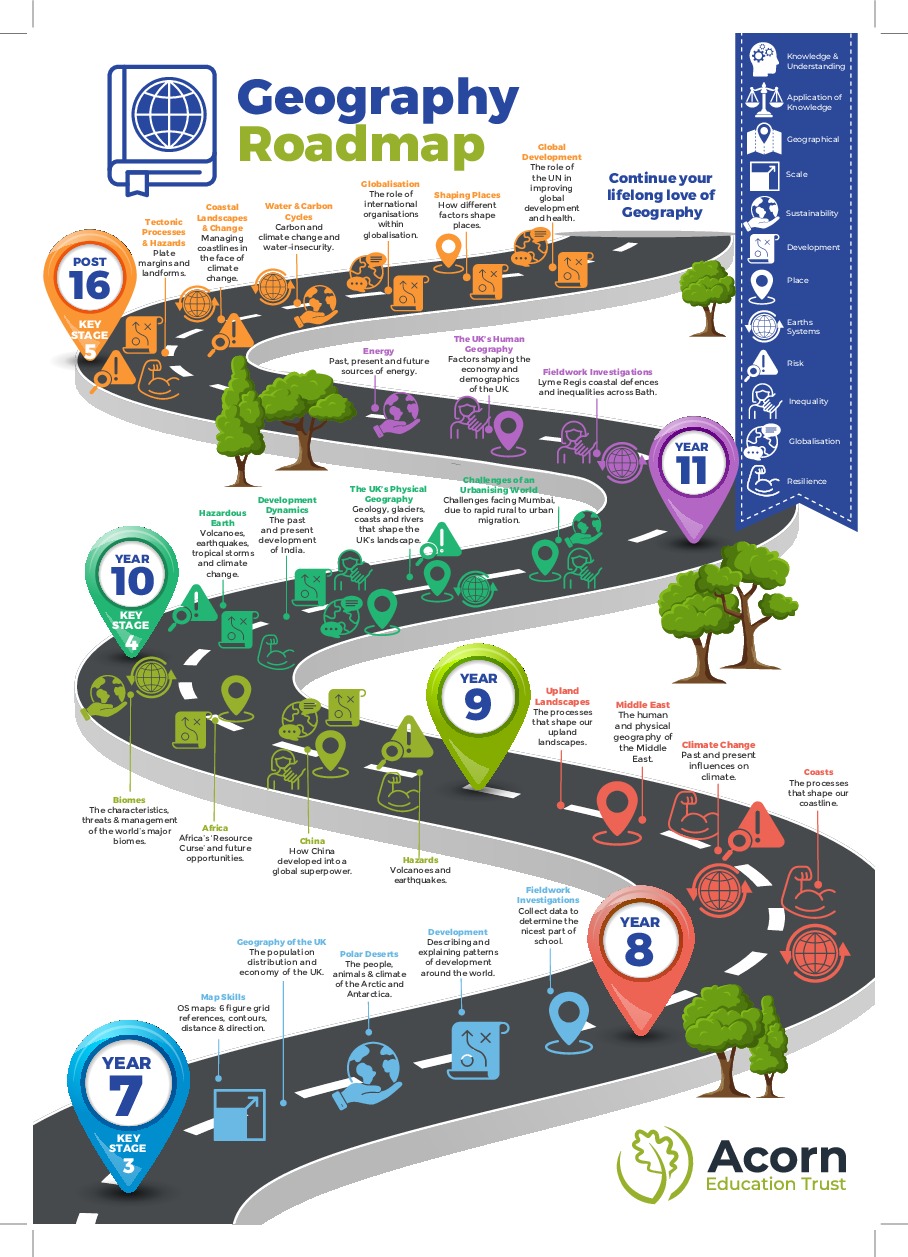
How we assess your child
Assessment Grades KS3
Students complete assessments in each of their subjects at key points during the year which test their understanding of all the knowledge they have learnt to date (we call these cumulative assessments). We grade these assessments on a scale from 1-9 (9 being the highest). The assessments are designed so that each year they become more challenging and test students on their growing bank of knowledge.
Therefore, as an example, if your child achieves a grade 5 in an assessment in Year 7, we can predict confidently that they should go on and achieve at least a grade 5 at GCSE. This is providing they keep working hard and progressing. Please note: this prediction states “at least”. Students often achieve higher than this.
In years 7 – 9, in practical subjects (PE, Drama, Music etc.), we assess students on their practical ability and skills. This gives us a strong indication of how successful they would be if they chose one of these subjects as a GCSE option. However, in order to get a fuller view of their potential success, it is also important to consider their grades in the core subjects. This is because there is often a literacy, numeracy, or scientific element to the courses.
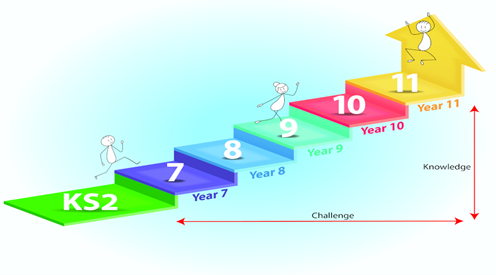
Assessment Grades in KS4
Students complete mock exams in each of their subjects at key points during the year which test their understanding of all the knowledge they have learnt to date. We grade these mock exams on a scale from 1-9 (9 being the highest). In the report you will see:-
- Target Grade: This is based on a student’s past performance. It is an aspirational but achievable target
- Mock Grade: The grade they achieved in the mock exam
- Predicted Grade: The grade a teacher believes a student will achieve in the final exam, if they maintain their current ATL and performance
Assessment Grades in KS5
Students complete mock exams in each of their subjects at key points during the year which test their understanding of all the knowledge they have learnt to date. We grade these mock exams on a scale from A*-E/Distinction* - Pass. In the report you will see:-
- Target Grade: This is based on a student’s past performance. It is an aspirational but achievable target
- Mock Grade: The grade they achieved in the mock exam
- Predicted Grade: The grade a teacher believes a student will achieve in the final exam, if they maintain their current ATL and performance
Exam Board Information
We study the Edexcel B 9-1 speciation which is broken down into three main components:
- Global Geographical Issues
- Geographical Issues of the UK
- People and Environment Geographical Issues
|
Component |
Topics |
Number of Marks |
Weighting |
|
1 |
|
94 |
37.5% |
|
2 |
|
94 |
37.5% |
|
3 |
|
64 |
25% |
